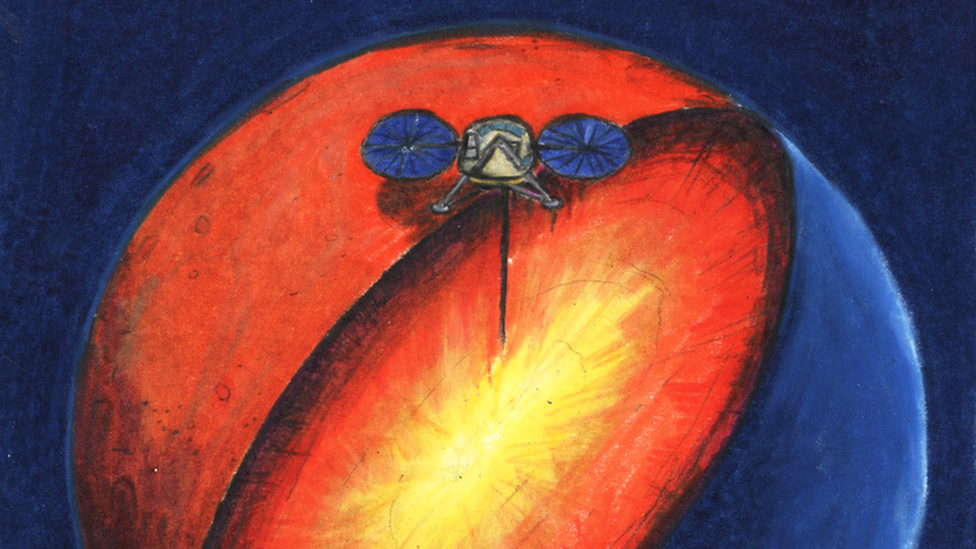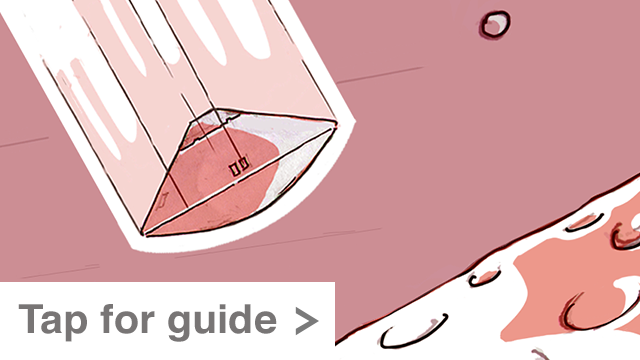InSight Diary: Beating the odds and landing on Mars
- Published
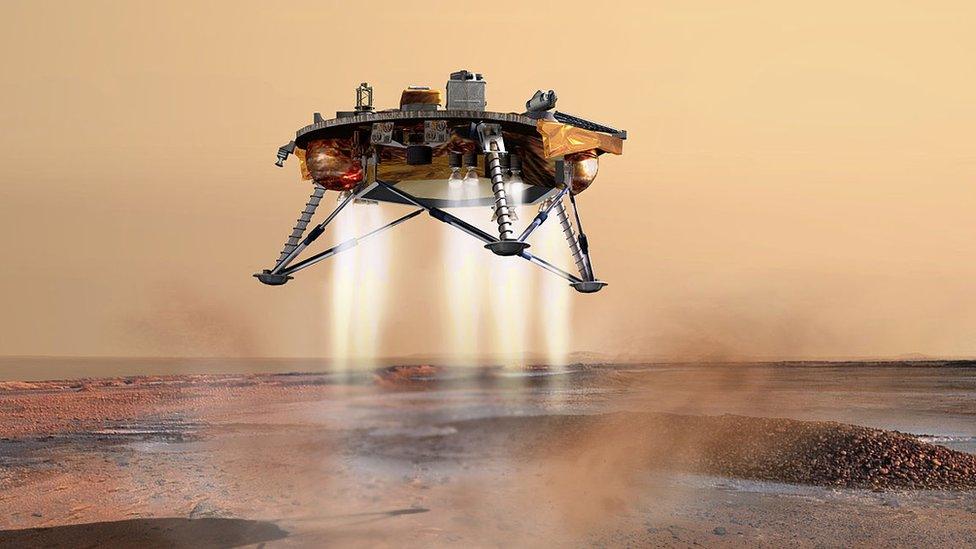
Artwork: It takes 6.5 minutes to go from the top of the atmosphere to the surface
Prof Tom Pike from Imperial College London is part of the science team on the US-led InSight mission to Mars, external. His group has supplied tiny seismometers, external that will enable the Nasa lander to detect "Marsquakes", which should show us the internal structure of the Red Planet. Here, just hours before InSight makes its bid to reach the surface of Mars, Prof Pike reveals his feelings.
As a scientist, I find it difficult to think that chance might play a role in achieving a breakthrough.
Napoleon is supposed to have asked "I know he's a good general, but is he lucky?"
Any scientist would cringe if they thought they would be similarly questioned.
As for engineers, it would be regarded as an insult if their bridges or tunnels had to rely on luck not to collapse or cave in.
However, as we now wait for the InSight lander to hit the top of the atmosphere of Mars, I'm hoping for a bit of luck.

That's certainly not supposed to be an insult! We have some of the best engineers in the world, from Nasa's Jet Propulsion Laboratory, to land our instruments on Mars.
Given that overall some 60% of missions launched to Mars don't make it, they have an astonishing record.
The last seven missions JPL have sent to the Red Planet, Odyssey orbiter, the Spirit and Opportunity rovers, Mars Reconnaissance Orbiter, Phoenix, and the Curiosity rover - all these missions made it.
Six years ago, Curiosity was lowered to the Martian surface from the improbable "Skycrane", an astonishing piece of engineering. We don't want JPL to break that winning streak now!
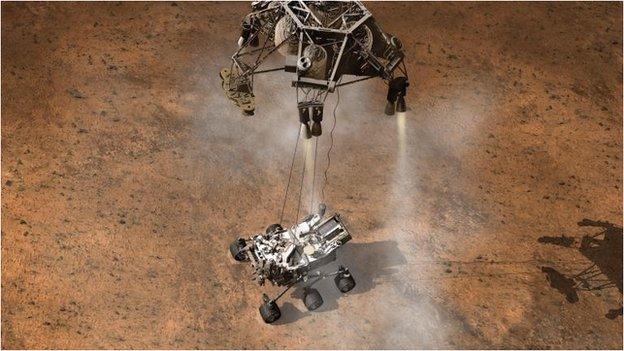
Artwork: A "Skycrane" was used to put the Curiosity rover on the surface
But even the best engineers in the world can't control every risk InSight faces in a few hours' time as it descends to the planet's surface. There is a string of spacecraft operations that first have to be executed faultlessly, but even after that, we could end up landing in just the wrong spot.
A rocky landing?
Mars is a rocky planet. Without any rainfall, it is only the wind that slowly breaks down the rocks that litter the surface. And rocks are being continuously dumped on the surface as meteorites punch through Mars' weak atmosphere over billions of years and re-excavate the surface.
If we pitch down on a big boulder, we risk losing a leg, or puncturing the deck of our lander.
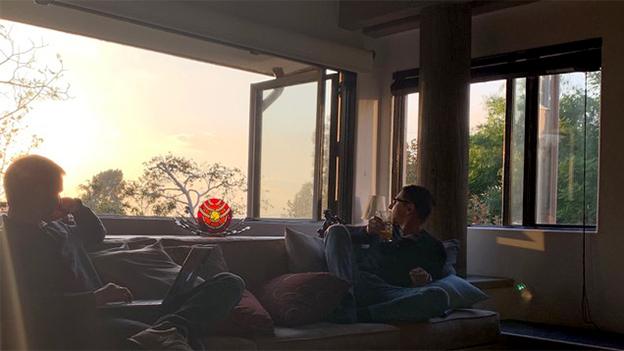
Constantinos and Alex from the UK’s team ponder InSight’s chances the evening before the landing
This is a game of chance - how much luck do we need? Constantinos Charalambous, one of the members of our UK team, has been working with Matt Golombek and the JPL scientists to calculate these odds.
This is not straightforward. The best images we have of our landing area can see rocks down to one metre in diameter. But rocks less than half that size could kill our mission.
We've had to choose a landing site based on peering below our resolution, using the best statistics we can throw at the problem. Constantinos wrote his doctorial thesis on this problem, based on the data we got back from the 2007/8 Phoenix mission to Mars.
The Phoenix microscope station gave us the closest look we've ever had of the soil on Mars. Constantinos worked backwards from those images to fill in how the rocks on Mars have fractured from huge boulders several metres across, to the finest dust invisible to the first human who sets foot on the planet.
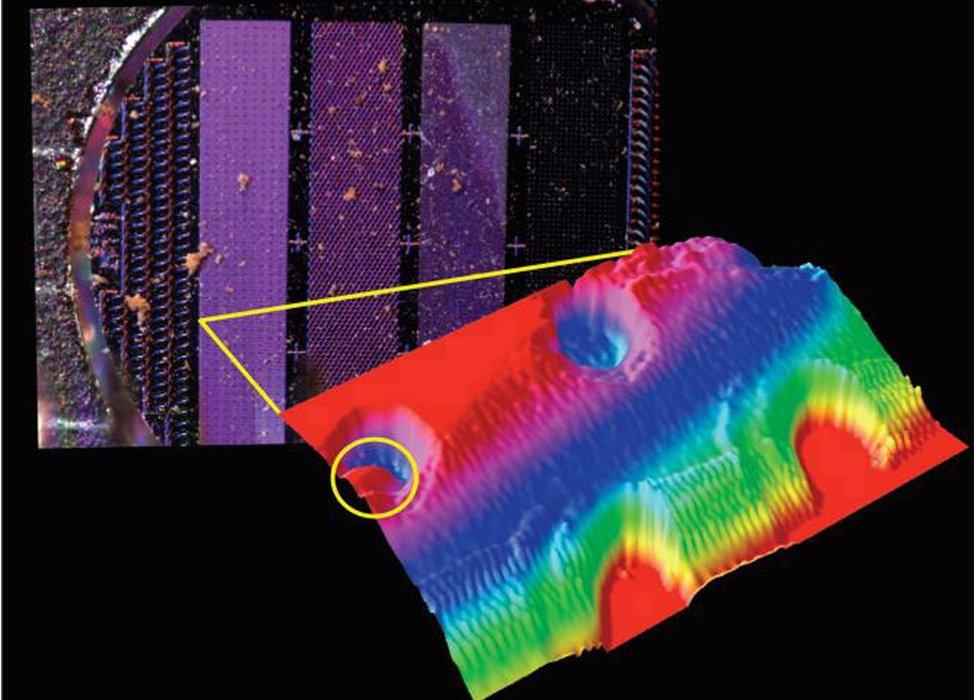
Phoenix dust data helped us calculate the odds of InSight landing safely
Based on these calculations for the area we've chosen to land InSight, we believe the odds of coming down on too large a rock are maybe 3%. That's certainly not impossible, and JPL have beaten worst odds the in the past.
But it's also fair to say they've been riding their luck and not every mission has had the same good fortune.
For example, it looks like Beagle II, the UK's first and only attempt to land on Mars, had the bad luck to come down right beside a boulder that prevented it unfurling its petals to get power and send back a signal to Earth.
Fingers crossed
It's not just the rocks. The atmosphere of Mars varies wildly, and we're relying on it to slow us down. The European Space Agency's Schiaparelli mission, the last attempt to land on Mars, failed when it started spinning too fast under its parachute on the way down.
Though I'm reluctant to admit it, we need a little luck on Monday. As Napoleon also said: "The greatest events hang by a thread."
I'm hoping that thread is strong enough to get us down to the surface of Mars in one piece.
- Published26 November 2018
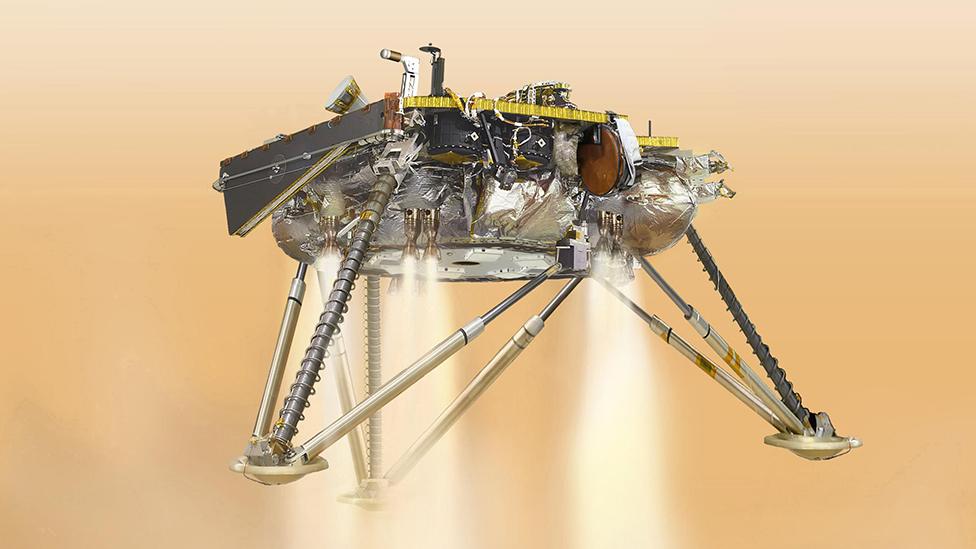
- Published25 November 2018
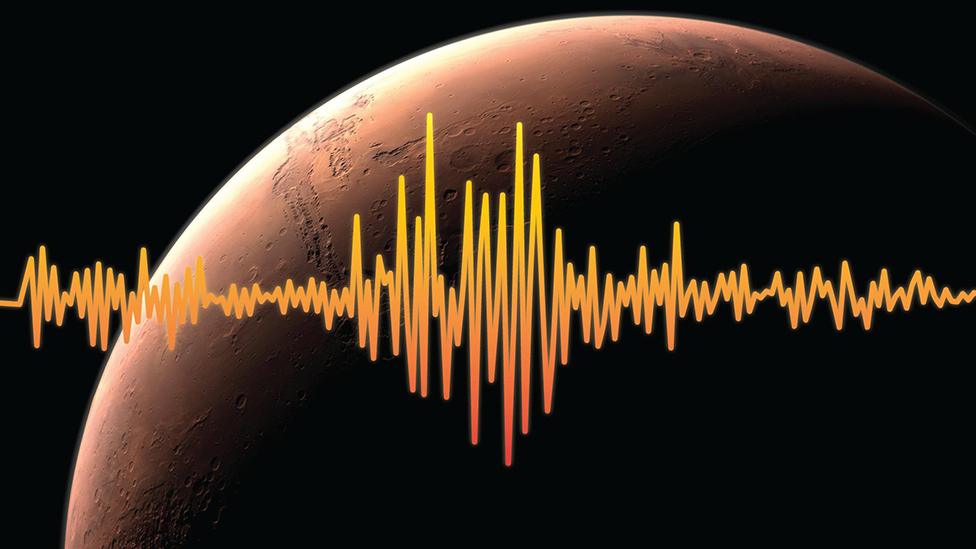
- Published7 May 2018
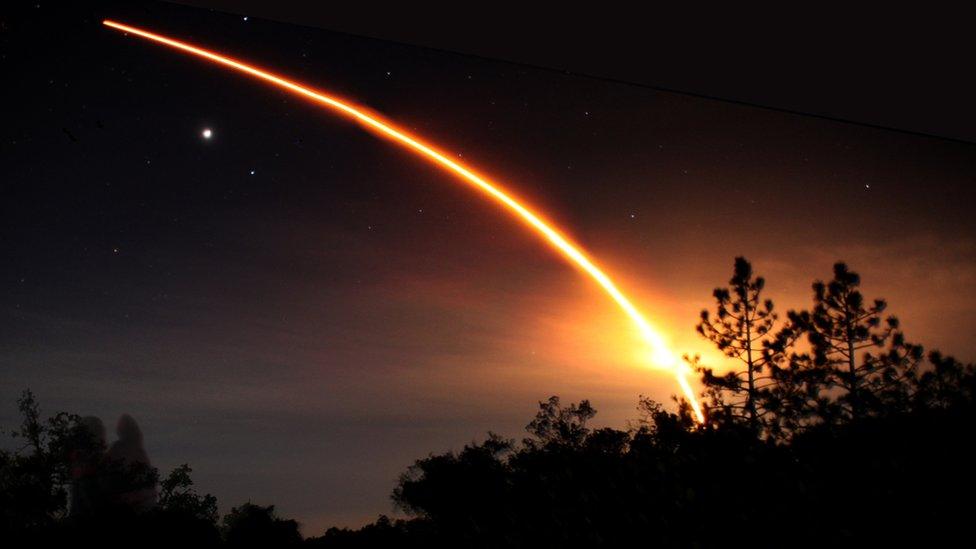
- Published1 May 2018
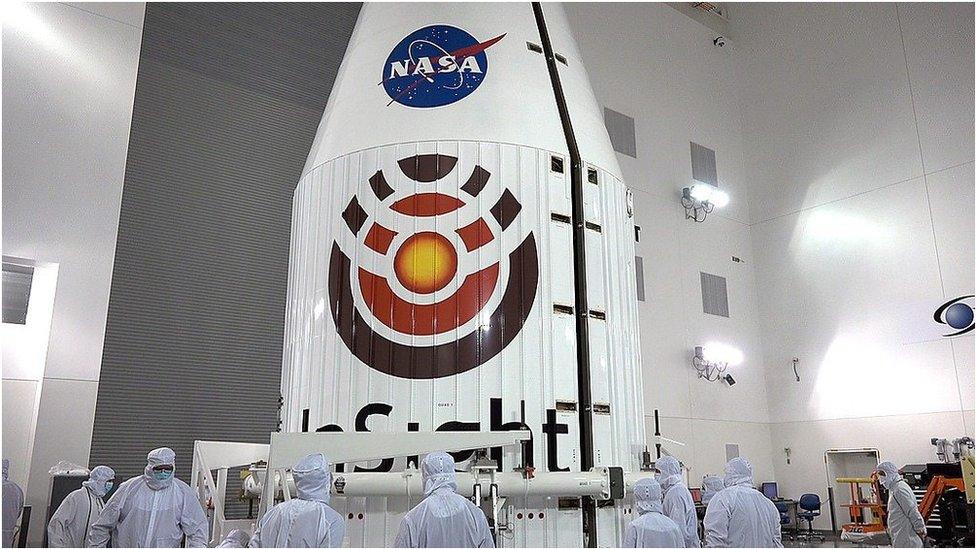
- Published5 May 2018
